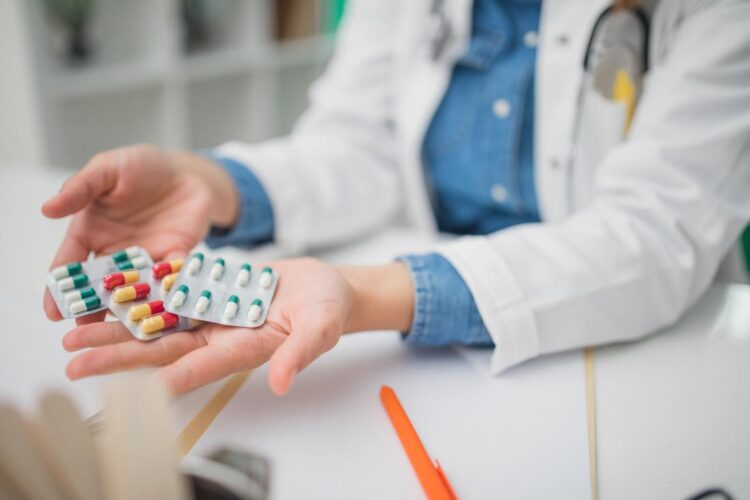Many people are aware of the addiction epidemic in the United States today. Much focus is put on opioids, the class of drugs that includes heroin and intensive painkillers, like oxycodone and hydrocodone. These drugs are especially dangerous because the substances can be laced with other drugs, which can make the use of opioids potentially deadly.
Another highlighted substance is alcohol, which is legal for anyone over 21 to consume in the U.S. Many people use alcohol to drown out their mental health, relational, and work issues, and it can be easy to become addicted to having a drink after a long day.
However, it’s possible to become addicted to many objects or substances and use them in unhealthy ways. Below are some seemingly harmless things that many people form an addictive pattern of using.
Please note, if you or a loved one is struggling with an addiction, it can be incredibly eye-opening to schedule a visit with a therapist or even call a non 12 step treatment center, like The Exclusive Hawaii, and find out more about what in-patient care looks like. With all addictions, there is a deeper issue at play, and it’s very hard to resolve these issues on your own.
1. Nasal Spray

Decongestant nasal sprays reduce inflammation in your nose to help you breathe better when you have a stuffy nose. For many cold sufferers, nasal sprays are a godsend to help get some sleep at night.
However, you’re only supposed to use nasal sprays for a maximum of three days. After that, your nose starts to build up a tolerance, and it isn’t as effective at clearing up your nasal congestion.
Some people, who already harbor addictive tendencies, may become very attached to this “clear nose” feeling, and may continue to use nasal spray for long periods of time. This continued use may actually have adverse effects on your nose, and may even lead to more congestion in your nose.
2. Allergy Medicine

Staying with the congested nose track, we move on to allergy medicine. In the Springtime, when people are fighting allergens like pollen and dust, they often turn to allergy medicine to relieve some of their symptoms. Many people take over-the-counter allergy medication at night to help them sleep.
Some people, however, may continue to turn to allergy medicine when they have a hard time sleeping. At this point, they are not using the medication for its actual use, and are instead using it as a sleep aid.
Over time, the person has to take more and more allergy medicine to feel the same effects. It may get to the point where they’re taking quite a large amount of medicine every night, and they feel like they can’t sleep without it.
Now, the person has likely created a physical and psychological dependence on allergy medicine. Like misusing any drug, this habitual usage of allergy medicine isn’t good for your body, and could be causing you to experience adverse effects.
3. Food

Eating disorders can be a very serious addiction that can stem from a lack of self-worth or body dysmorphia issues. Eating disorders can include anorexia, bulimia, or binge eating disorder.
At the same time, people can become attached to a specific food, and overeat that food to an unhealthy degree.
One food that many people struggle with overeating is potato chips. People can eat multiple bags at a sitting and can connect the eating habit to certain activities they do. So, for example, anytime they’re watching TV, they feel the need to eat chips.
Another common food group to overeat is sweets. The rush that our brain gets from sugar makes it an easy target for overconsumption.
Especially when you overeat these unhealthy foods, your body can start to take a hit from the lack of balanced nutrition in your daily food intake.
4. Caffeine

Another dietary-related addiction can be caffeine. From coffee to soda to energy drinks, many people feel compelled to drink multiple highly caffeinated beverages a day.
One of the reasons caffeine can be so hard to kick is the uncomfortable withdrawal symptoms that many people experience when they try to lower their dosage. Intense “caffeine headaches” can often plague people who choose to forgo their typical latte or espresso.
Luckily, these effects are only temporary and your body adjusts relatively quickly to a lower caffeine intake.
5. Screens

While there isn’t a physical dependence that forms from watching TV, playing video games, or scrolling through social media on your phone, there is a strong psychological pull for many people.
Take video games, for example. When someone is playing video games for 12 hours a day, and is neglecting their household duties or ignoring their loved ones, there could be a deeper issue at play here. If they feel compelled to play, and truly can’t go without it, these are signs that an unhealthy habit has formed.
With social media, people can become obsessed with comparing themselves to what their peers are doing, and feel like if they aren’t constantly scrolling through their favorite app, that they’re going to miss something.
They can also feel compelled to constantly update the world on their own habits, recording everything from their recent meal to their trip to the dentist. While many people use social media regularly, it’s always good to take a step back and ask yourself, “Why do I feel the need to always post? What am I trying to feel from this?”
It’s been said that a like on social media is akin to taking a drug because your brain experiences a rush of dopamine. It’s not just from getting the like either – it’s the unpredictability of whether you’ll get a like or not. There’s no way to know for certain how many likes you’ll get, so it’s similar to the rush people get from the uncertainty of gambling.
In today’s world, we have an endless supply of distractions to entertain us, fill our bellies, and help us feel better. But when we begin to abuse these things, we can find ourselves needing to find other ways to help us feel better or numb the pain.
For some who struggle with more dangerous addictions later in life, the first signs are an uncontrollable need for candy or having three bottles of nasal spray stored in their medicine cabinet. Look for these signs in yourself and others, and you may be able to start asking yourself the hard questions about your addictive tendencies before they become life-threatening.
 Hi Boox Popular Magazine 2024
Hi Boox Popular Magazine 2024



